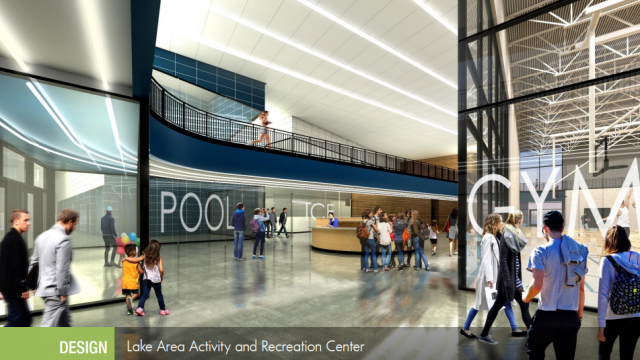When Voters Say “No” Public Officials Should Listen

One of the most aggravating tactics local officials use against taxpayers is putting controversial spending proposals on the ballot over and over again.
Case in point, last night the citizens of Devils Lake rejected a proposal to institute a half-cent sales tax for a massive 70,000 square foot, $19.5 million recreation center. This thing is so large that every one of Devils Lake’s 7,300 citizens could stand in it and have about 10 square feet of space to themselves.
Voters in Devils Lake rejected this project before back in 2014, and last night despite a survey from project designer JLG architects from supporters showing 70 percent approval for the project, it was shot down in a lopsided 766 to 444 vote.
Yet still, local officials plan to put the issue before voters again:
“Everybody is going to have to take a step back like we did the first time,” Johnson said. “We’re going to have to let the dust settle a little bit and see what was good about it and what people didn’t like about it.”
Several public input meetings were held in advance of the vote, and earlier surveys had shown 70 percent of the residents were in favor of building a recreation center in this city of 7,300.
Johnson said planners next will reevaluate what the public really wants in an activities and recreation center.
“I don’t know, is it the price?” he said. “We’ve tried it twice now, and we’ve been unsuccessful. If it’s the price tag, we need to find out what features people really want and what price tag they are willing to support.”
Here’s an idea: Maybe voters don’t want a rec center, and local officials should stop asking.
I often wonder if these rec center proposals, which we’ve seen be successful to one degree or another all over the state, isn’t more about generating work for the firms designing them than serving the public. JLG has been building these sort of projects all over the region, often at taxpayer expense, per their presentation to Devils Lake:
Firms like JLG tout these facilities, and lobby to build them, but is it about serving these communities? Or creating business for JLG?
Regardless, if voters say “no” maybe the response from the bureaucrats and politicians shouldn’t be to keep trying.
No should mean no.





